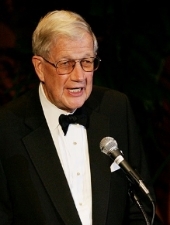Event: The Nuclear Deal and the Future of US-Iran Relations
/Registration has closed
September 28, 2015: 6:45-8:15pm
Marymount Manhattan College
Regina Peruggi Room
221 East 71st Street
New York, NY 10021
Despite a largely hostile relationship, the United States and Iran reached a negotiated, diplomatic solution to the nuclear issue in July 2015. While many regard this as a major achievement, the US Congress is largely skeptical of the deal.
With many developments related to the nuclear issue ongoing, the Department of International Studies at Marymount Manhattan College and the American Iranian Council are pleased to announce that we are hosting a panel discussion to weigh the merits of the nuclear deal as well as its broader implications for US-Iran relations.
Our panelists include Ambassador William Luers of the Iran Project, Patricia DeGennaro of the World Policy Institute, and Jack Hayes of the law firm Steptoe & Johnson.
Patricia DeGennaro
Amb. William Luers
Jack Hayes
Light refreshments will be available.




